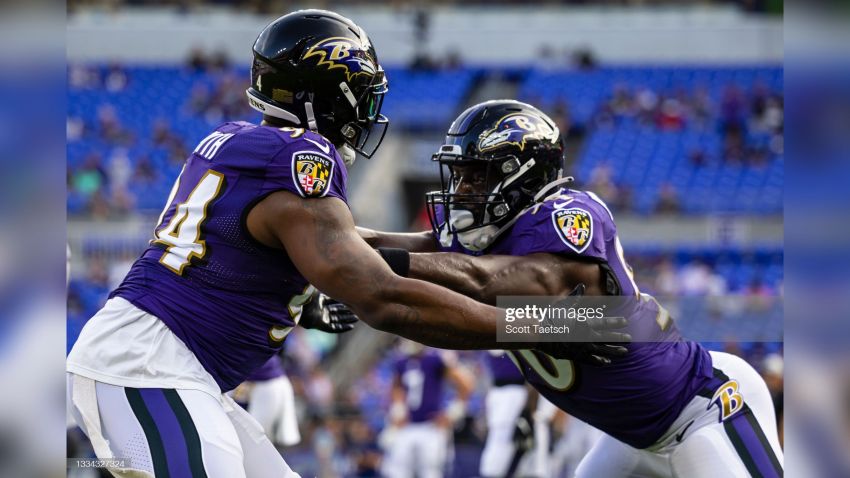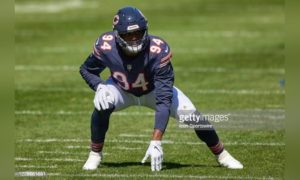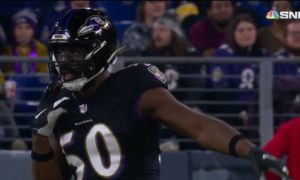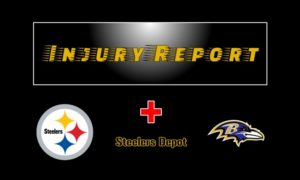The Baltimore Ravens opened a hole in their wide receiver room in the weeks leading up to the 2022 NFL Draft, waiving Miles Boykin and then trading Marquise Brown. They waited until the fourth round of the draft before evidently seriously considering drafting the position, only to have their target swept up from under them.
Yet even though the Ravens had a wealth of draft capital, wide receiver is not the only hole remaining to them. They also failed to address the edge rusher room—at least in a way that would significantly benefit them for the 2022 season. While they did draft a would-be potential first-round prospect in David Ojabo, he tore his Achilles at his Pro Day, and it’s not clear at all he would be available at any point during his rookie season.
To that end, they applied the little-used unrestricted free agent tender on veteran outside linebacker Justin Houston recently. It’s an interesting tender much different from others, and would primarily benefit the team substantially later.
A player given the unrestricted free agent tender may still sign with any team uninhibited between now and the start of training camp, or by July 22, whichever date is later, with the only caveat being that for such a tendered player, his signing would still factor into the compensatory formula. All other free agents are no longer compensatory following the Monday after the draft.
If Houston does not sign with a team between now and the start of training camp, then the Ravens will be given exclusive negotiating rights for his services, meaning that he would not be able to play for any other team this year. The tender amount is 110 percent of the player’s prior-year salary.
Houston earned $2.075 million last season from the Ravens, with a minimum salary and a signing bonus of $1 million on a one-year contract, so he would play under a one-year contract worth 10 percent more with the Ravens if no team signs him before training camp.
Given that teams will now no longer have any reason to wait to attempt to sign him, I would imagine that we should get an answer relatively soon as to whether or not there will be any interest. Teams often wait until after the draft to sign lower-priority veterans, for not the least of which reason being the expiration of the compensatory period. Now any team that wants to sign him must sign him as a compensatory free agent unless Baltimore at some point decides to pull the tender.
Houston is a former All-Pro, but he was little more than a role player last year, and would be playing behind Tyus Bowser and last year’s first-round pick, Odafe Oweh, at the position. But they attempted to bring back Za’Darius Smith on a big-money deal early in free agency, strongly indicating their hopes to address the depth here in a meaningful way.
The Kansas City Chiefs also used the unrestricted free-agent tender on Melvin Ingram, whom, of course, the Pittsburgh Steelers originally signed as a free agent last year, just before training camp. They traded him to the Chiefs midseason.








